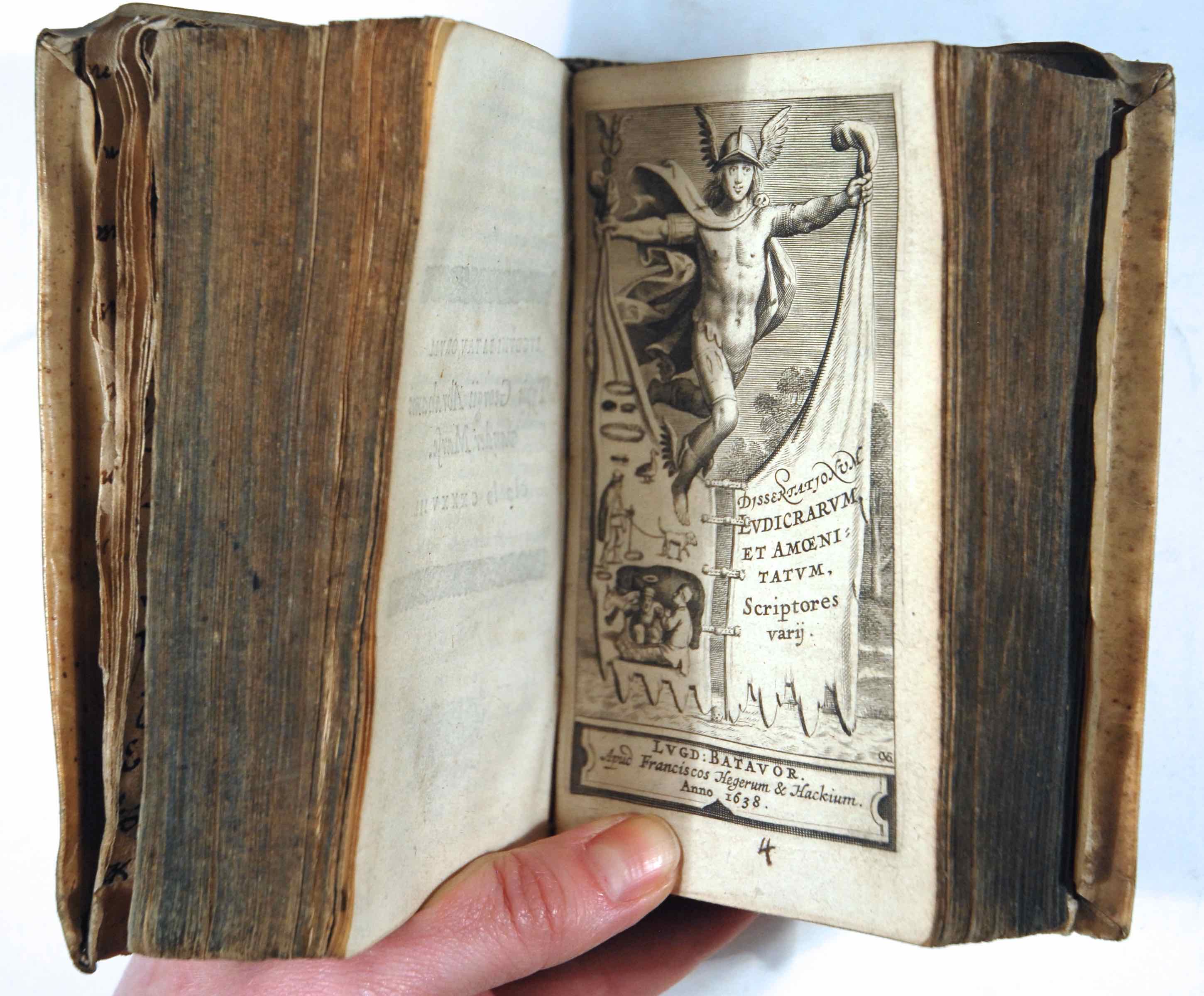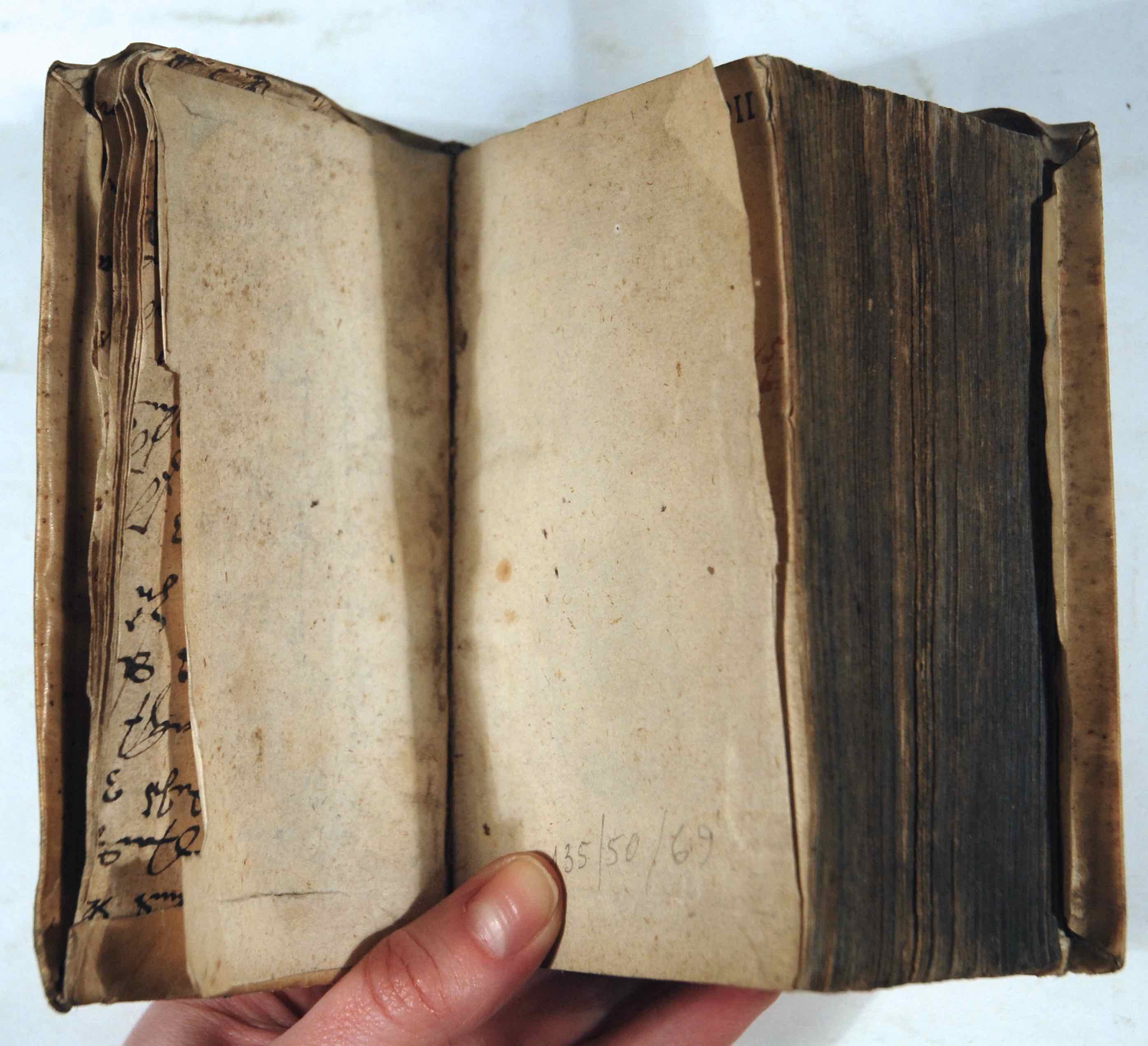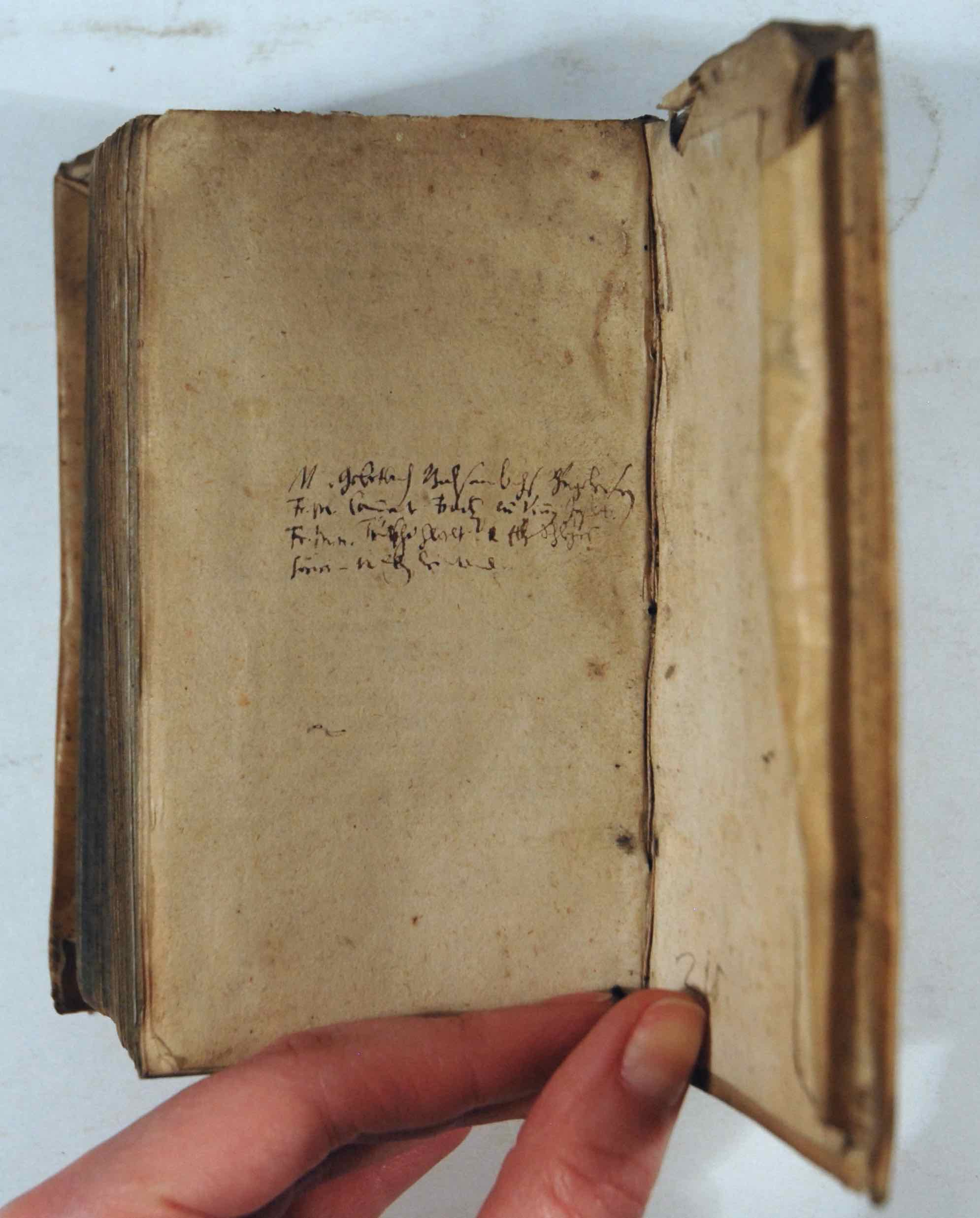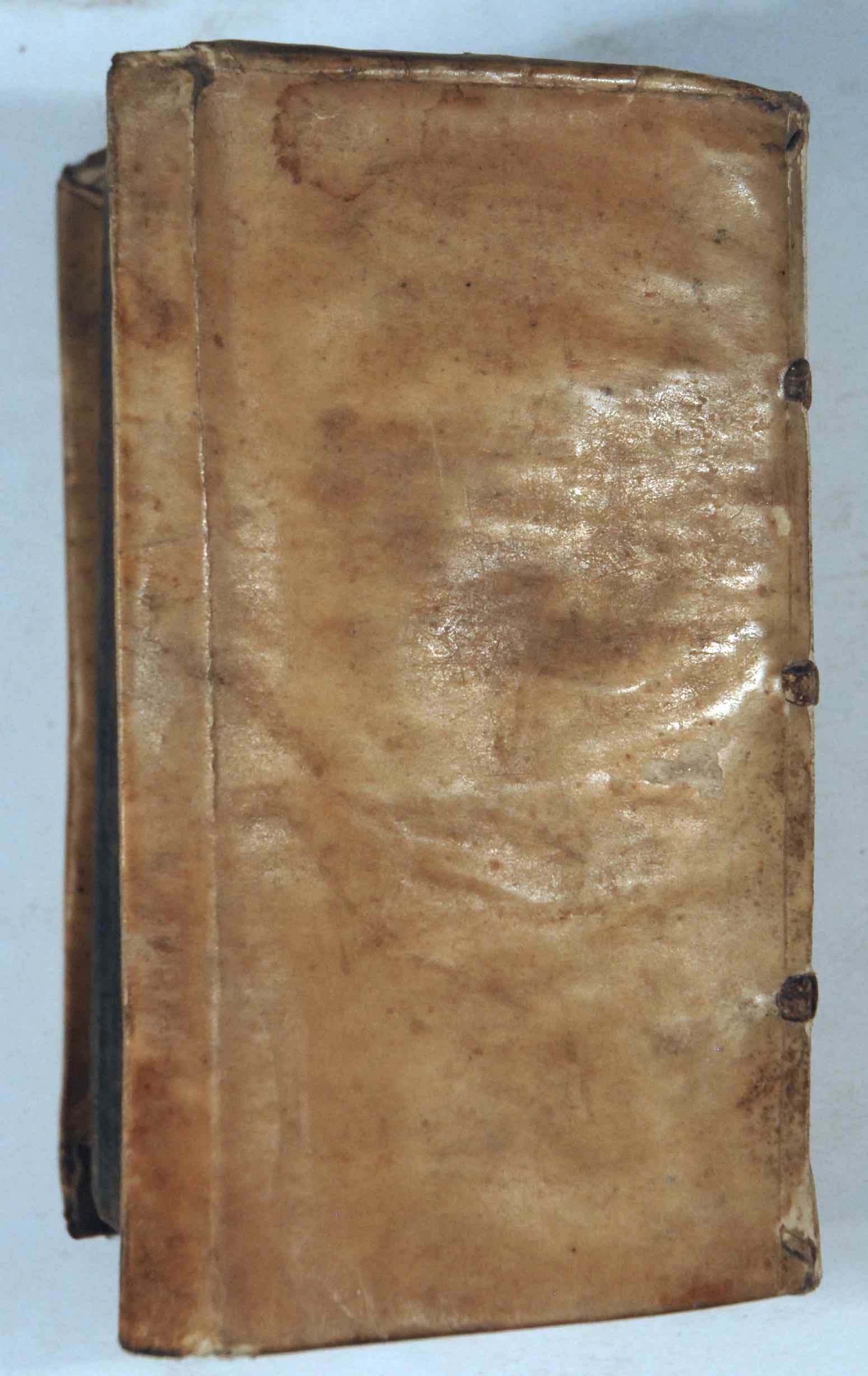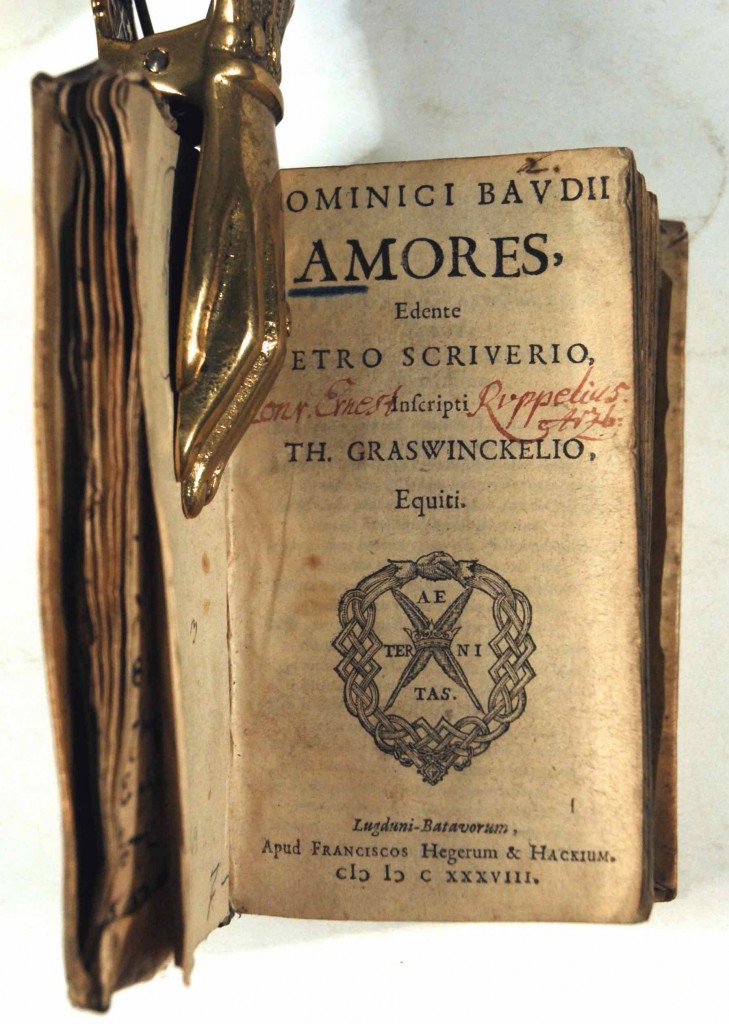BAUDIUS, Dominicus
Amores. with Dissertationum ludicrarum at amoenitatum scriptores varii.
Leiden, Franciscus Hegerus and Franciscus Hackius, 1638£1,450.00
8vo, two volumes in one: 1): FIRST EDITION. pp. [12], 518, [2]; 2): pp. 7, [1], 567, [1], final gathering Aa8 incorrectly bound after initial table of contents. Predominantly Roman letter, little Italic and Greek; decorated initials and head- and tail-pieces, printer’s device on title 1 (a little dusty), detailed full-page engraved portrait of Baudius at f. ***viv, engraved title 2; occasional spot to margins. A very good copy in contemporary plain vellum; a bit worn, front cover crudely repaired after partial removal of central vellum, overs boards made from multiple ll. of earlier ms; all edges blue; contemporary owner’s inscription to title 1) ‘Con. Ernest Ruppelius Arzb.’; contemporary annotation to verso of rear endpaper.
A very amusing collection of Neo-latin poetry and essays published by the main competitors of the Elzevier press. The first work is the editio princeps (variant B of the imprint) of a sammlung of love writings, mainly by Domenicus Baudius. Baudius (1561-1613), probably a nickname for Dominique Baudier, was a prominent poet, historian and professor at the University of Leiden. Graduate in law in 1585, he received encouragement from Joseph Justus Scaliger and De Thou to engage in Latin poetry and later befriended Philip Sidney, Daniel Heinsius and Hugo Grotius. He started teaching at the University of Leiden in 1602, first as professor of rhetoric and then of history. For this reason, he was entrusted with the composition of a chronicle of the Dutch war between 1609 and 1611. His Amores were edited posthumously by Peter Schrijver (1576-1660), a younger colleague of his in Leiden as well as a Neo-Latin poet and historian in his own right. They gather several of Baudius’s letters and verses recounting his erotic often-failing adventures, along with a great number of other pieces related to love and marriage by both his erudite friends (Hensius, Grotius, Schrijver, Scaliger and Salmasius) and earlier humanists such as Erasmus, Lelio Capilupi, Giovanni Carga and even Thomas More with his Qualis uxoria deligenda. Schrijver took the opportunity to include some annotations by himself, Salmasius, Pithou and Lipsius about the famous anonymous poem of late antiquity Pervigilium Veneris. This edition, printed by George Vander Marse, was published jointly in Leiden by Hagerus & Hackius and in Amsterdam by Louis Elzevier.
The other half of the volume is taken up with the second edition of a collection of scholarly divertissements, bearing a new title in respect of the princeps issued in 1623 as Argumentorum ludicrorum scriptores. It comprises short smart essays in praise of swimming, laughing, fleas, elephants, donkeys, ants, cows, lice, flies, blindness, malaria and gout. Among the authors are Melanchton, Willibald Pirckheimer, Celio Calcagnini, Marco Antonio Maioraggio, Jean Passerat and again Lipsius, Hensius and Scaliger.
The voluminous ms binder’s waste is a potential feast for scholars.
1) Brunet I, 703; Graesse, I, 312; Gay, I, 103 (‘recueil estimé et peu commun’); Willems, 961 (‘le volume des Amores est bien execute, et les beaux exemplaires son assez recherchés ... Il était dèjà rare en 1712’).2) Brunet, II, 762; Graesse, II, 410; Gay, II, 14; Willems, 1633.In stock



